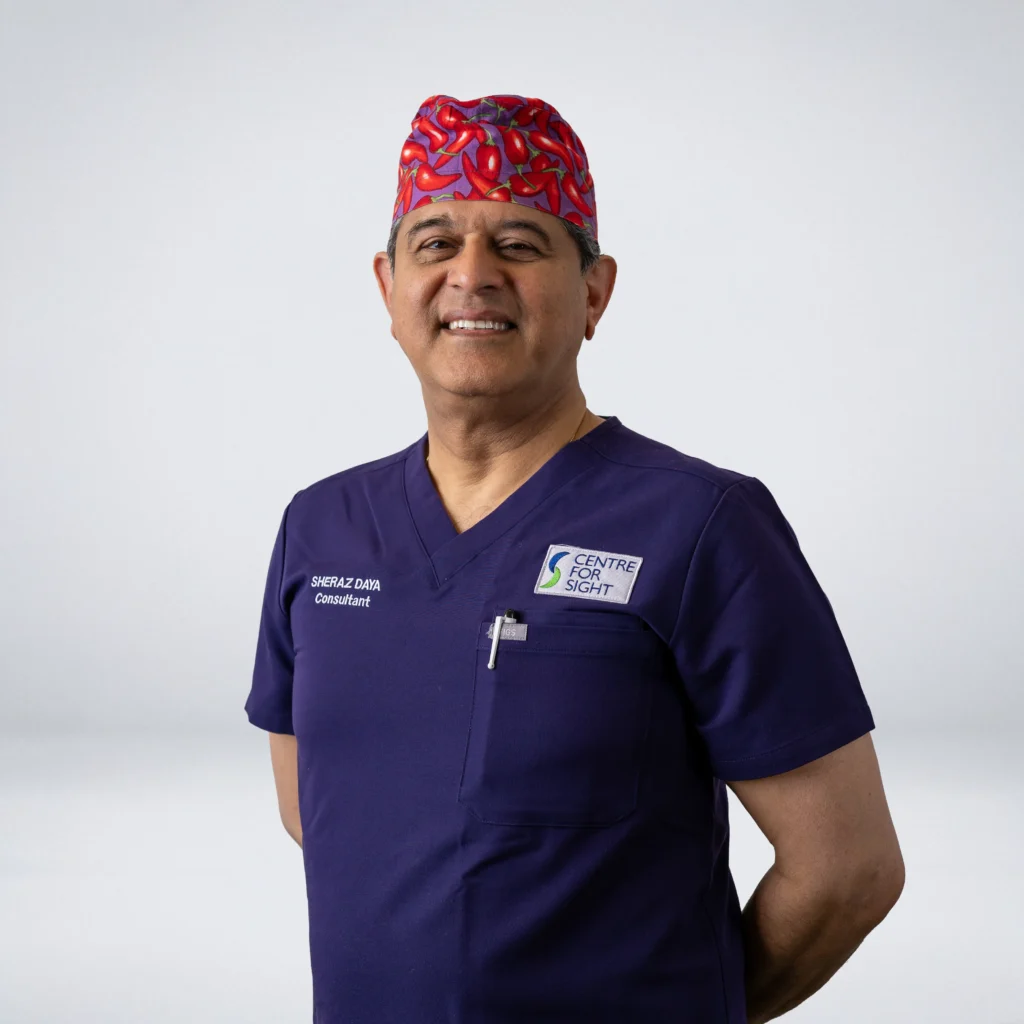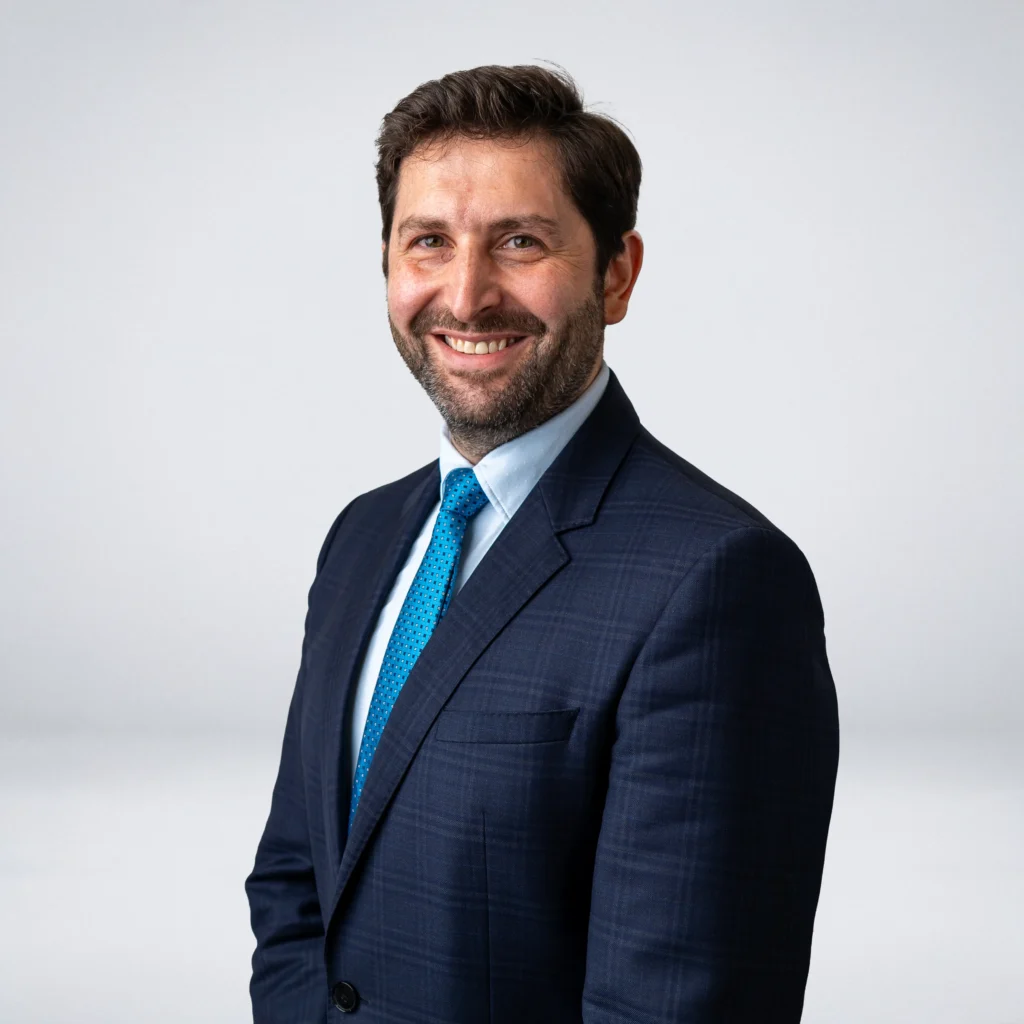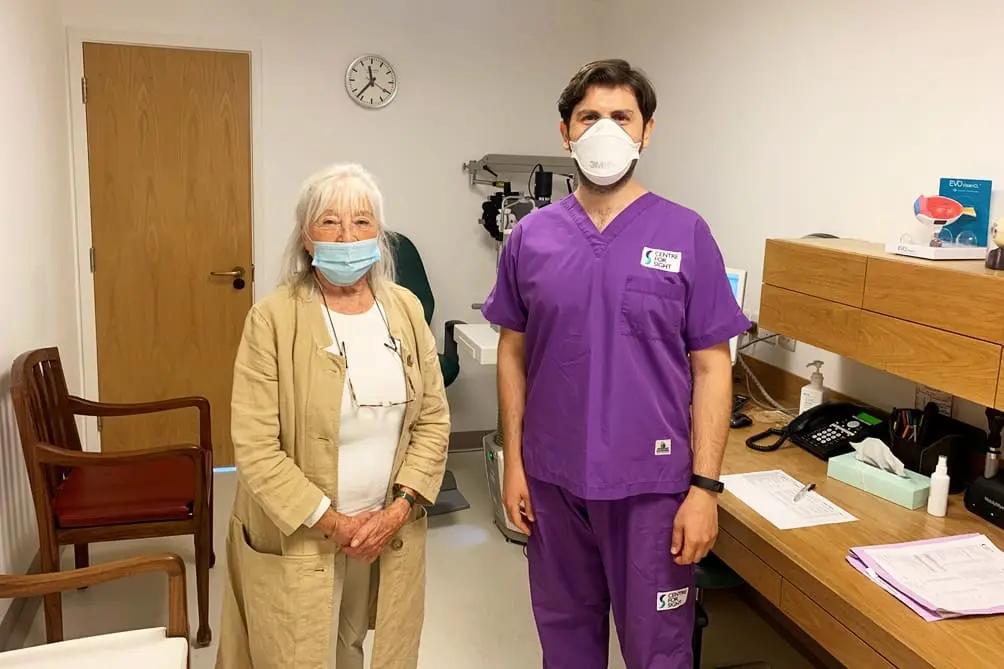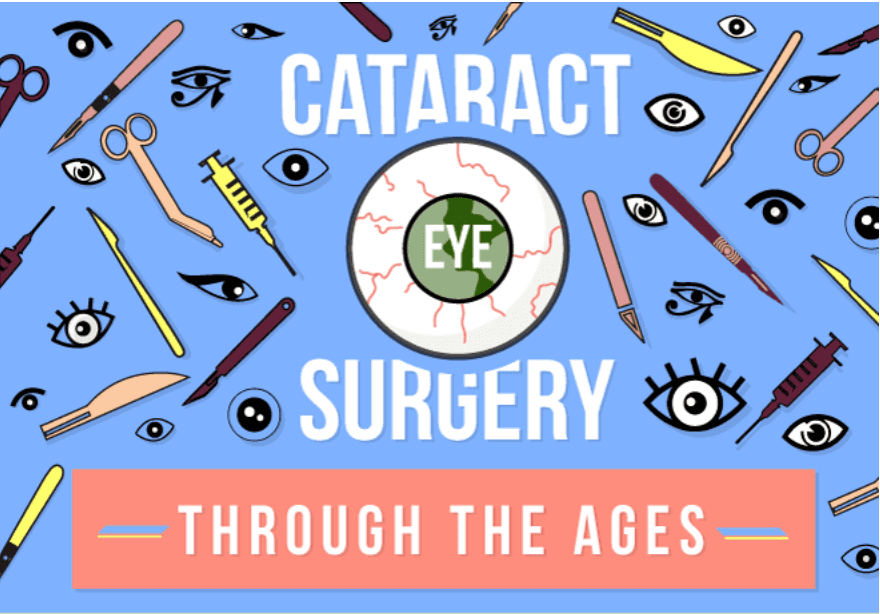What is Refractive Cataract Surgery?
Refractive cataract surgery is an advanced form of cataract removal that not only restores clear vision but also corrects existing refractive errors, such as short-sight (myopia), long-sight (hyperopia) and astigmatism using premium intraocular lenses (IOLs).
At Centre for Sight, we combine laser-assisted precision with state-of-the-art lens technology to deliver both clarity and convenience. The procedure uses a femtosecond laser for precise steps, including the lens opening (capsulotomy) and lens fragmentation, ensuring accuracy and safety. You can also choose from a range of premium lenses including multifocal, trifocal and toric implants, designed to give sharp vision at near, intermediate and distance ranges, helping to reduce or eliminate the need for glasses.
Types of Cataract
Cataracts form when the natural lens of the eye becomes cloudy, scattering light and causing blurred or dimmed vision. There are several common types:
- Nuclear cataract: Forms in the central part (nucleus) of the lens, typically causing gradual yellowing and blurred distance vision.
- Cortical cataract: Develops around the edges of the lens and can cause glare, light sensitivity, and issues with night driving.
- Posterior subcapsular cataract: Occurs at the back of the lens, often leading to difficulty reading and increased glare in bright light.
Refractive cataract surgery effectively treats all types of cataract while also correcting refractive errors meaning patients enjoy clearer, sharper vision and often greater freedom from glasses.
Read More














